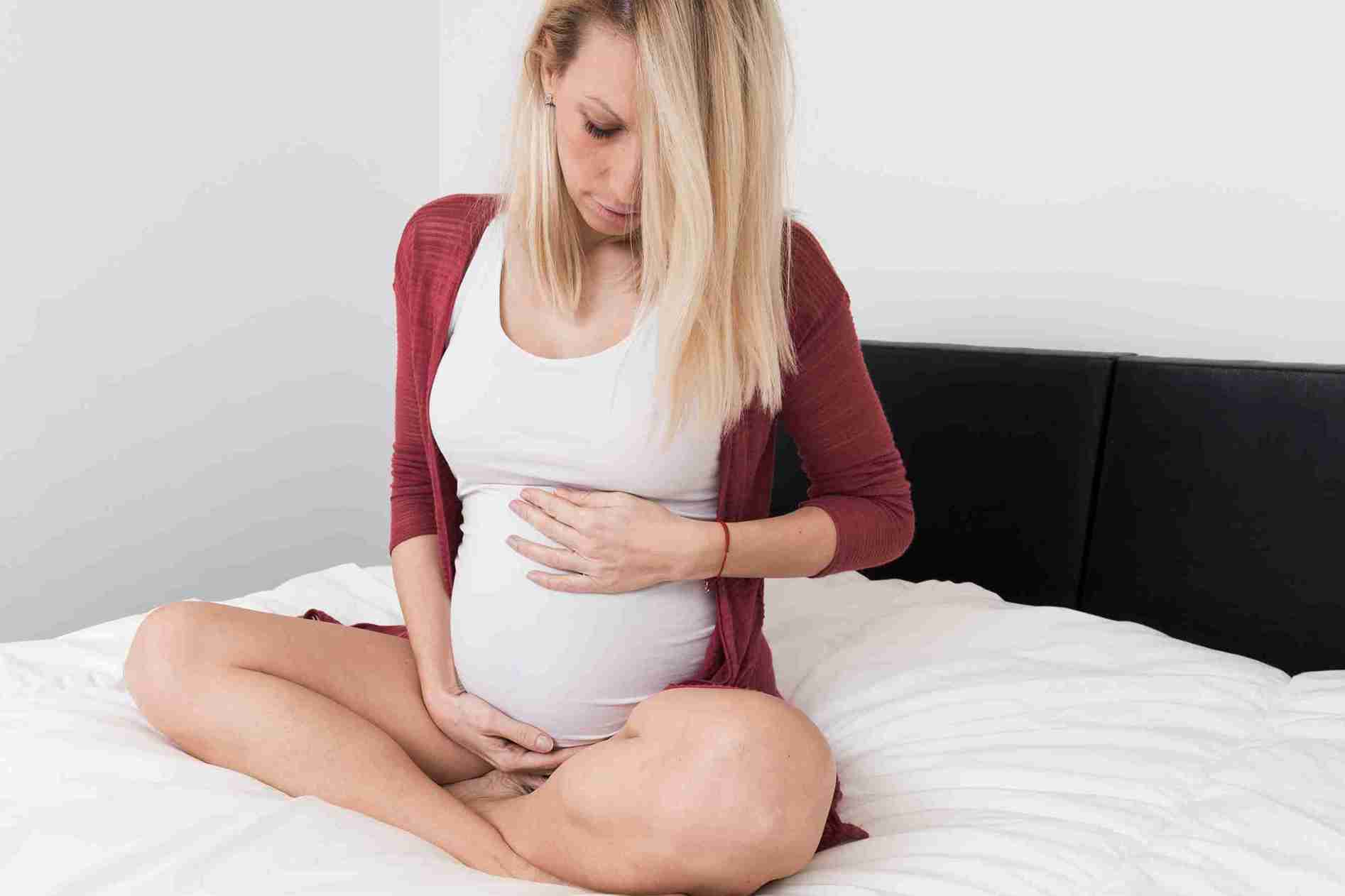
A hernia is a condition that occurs when an organ or tissue protrudes through a weakness in the abdominal wall muscles. It can occur at any stage and due to varied factors. Women can get hernia during pregnancy, as it is a sensitive timeframe during which women's bodies undergo many changes, causing weakness in the abdominal muscles. Understanding hernias during pregnancy can ease anxiety and help you take informed steps toward management. Read on to learn more about hernia, its causes and symptoms, and the various treatment options.

A hernia occurs when soft tissue, such as fat or part of an organ, pushes through a weakened section of muscle or connective tissue, often settling just beneath the skin. It typically occurs when the muscles weaken or due to an opening in the abdominal wall. In a few cases, it could be congenital. Most women can get hernia during or after pregnancy. The belly swells up during pregnancy, and muscles weaken, making the body prone to developing hernia.
There are different types of hernias based on the area they affect. Hernias are caused mainly by various factors involving organs or certain tissues that come through weak areas. Hernias might occur in the groin area, front midline of the abdomen, lower chest or where previous abdominal surgery occurred.
● Umbilical hernia: This affects the area near the belly button. This is likely to occur during pregnancy.
● Incisional hernia: This occurs at the incision site, as the muscular weakness usually develops post-surgery.
● Femoral hernia: In this type of hernia, the tissue bulges in the upper thigh or groin area.
● Inguinal hernia: This type of hernia affects the weak spot in the groin area.
● Hiatal hernia: This occurs in the upper part of the stomach. This type can develop during pregnancy when the growing uterus puts pressure on the diaphragm and stomach.
● Spigelian hernia: The hernia occurs on the side of the abdomen.
● Epigastric hernia: The tissue bulge is seen in the upper abdomen area.
● Congenital diaphragmatic hernia: This issue, evident since birth, is due to the diaphragm’s nonclosure, which leads to the development of a hole resulting in a hernia.
● Perineal hernia: This is an uncommon condition in which organs or tissues push out into the perineum through weak pelvic floor muscles.

Hernia can occur due to varied reasons. These can exist since birth or be acquired. Congenital hernia occurs due to issues with the abdominal wall during fetal development, whereas acquired hernias develop slowly due to varied factors. The factors that lead to the development of hernia include muscular weakness, acid reflux, pressure in the abdomen or genetic factors. Muscle weakness may result from aging, overexertion, obesity, or previous surgeries. In contrast, pressure in the abdomen grows during pregnancy due to a growing fetus, a chronic and persistent cough, or constipation.
Even though all hernias do not show symptoms or signs, some can show signs that something in the body is not correct. One might see a lump in the abdominal or groin area and feel aches, tenderness, a burning sensation, or pressure in the affected area. In a few cases, this comes out only when doing something that causes exertion, like lifting or coughing.
The symptoms vary for different types of hernia and in different conditions. For instance, hernia while pregnant symptoms include dull aches, tenderness in the area, abdominal heaviness, constipation, vomiting and nausea. It is essential to know hernia symptoms so that periodical self-checks can be done to manage and treat the condition.
One of the causes for women to get hernias is pregnancy. So what causes hernia during pregnancy? The simpler explanation is that during pregnancy, the abdominal muscles weaken due to the pressure from the growing fetus. When a baby grows, the uterus expands. This leads to pressure developing in the abdomen. This pressure may result in organs or tissue protruding through the weak points in the wall of the abdomen. This protruding tissue results in a hernia.
Umbilical hernia, inguinal hernia, hiatal hernia, and sometimes incisional hernias (particularly after previous C-sections) are different types that may develop during pregnancy. While most hernias during pregnancy don't directly affect the baby, it's essential to seek medical attention if you experience any symptoms like a bulge in the abdomen. In rare cases, severe hernias (especially strangulated ones) could potentially lead to complications that might indirectly affect pregnancy. For instance, the symptoms of inguinal hernia during pregnancy include dull pain, a lump in the groin area, being unable to lift the leg on the affected side, and increased pain. It is good to approach medical practitioners who will assist in managing and monitoring hernia symptoms. Possible treatments will be suggested only after the delivery.

Medical intervention is essential if the hernia is discovered. The medical practitioners will closely monitor the affected area until they recommend treatment. No action will be recommended if the hernia is small or it is a hernia during pregnancy. However, it may be recommended to use hernia belts to alleviate the symptoms.
Over time, if the hernia gets worse, treatment will be recommended. Treatments mainly include surgery, but the type of surgery and the time to perform it will vary depending on the type, location and severity. For instance, certain hernias, like congenital umbilical hernias or hiatal hernias, can be left untreated till they become problematic. The types of invasive procedures to repair hernias include:
● Open surgery: This is a traditional approach to treating large and complex hernias. This requires a large incision in the groin or abdomen. Here, surgeons try to push the projected tissue back into it and protect the area through mesh or stitches.
● Laparoscopic surgery: This quick procedure allows patients to recover quickly as the incision is small. Here, surgeons insert a thin tube with a lighted camera to examine the affected area and use another keyhole to insert the thin tools to perform the surgery. This is a less complicated process, and patients can recover quickly.
● Robotic surgery: This is a minimally invasive procedure where surgeons operate robotic arms via computer consoles to perform the surgery.
These procedures will be recommended only if the symptoms are acute. The practitioners might suggest mesh reinforcement to strengthen the herniated area in certain cases so that the hernia will not recur. Most importantly, hernia in pregnancy treatment will be mostly watch and wait unless critical conditions like strangulation (blood supply cut off to herniated area) arise.

It is essential to know about hernia and its symptoms. Monitoring symptoms—especially during pregnancy—can help prevent complications and ensure timely medical support. This is because pregnant women are prone to getting hernias as stretching of abdominal muscles takes place.

While surgery is avoided during pregnancy, hernias can be managed with criteria like hernia belts and lifestyle changes. In severe cases where complications like strangulation occur, emergency surgery may be necessary, even during pregnancy.

No, hernias do not heal on their own. Surgery is typically required to correct them.

It is good to seek a medical practitioner’s advice in case one is already diagnosed with a hernia, as pregnancy involves stretching of abdominal muscles.

Hernia cannot be cured without surgery; it can only be managed. Hernia belts or lifestyle changes can only alleviate the symptoms of hernia.